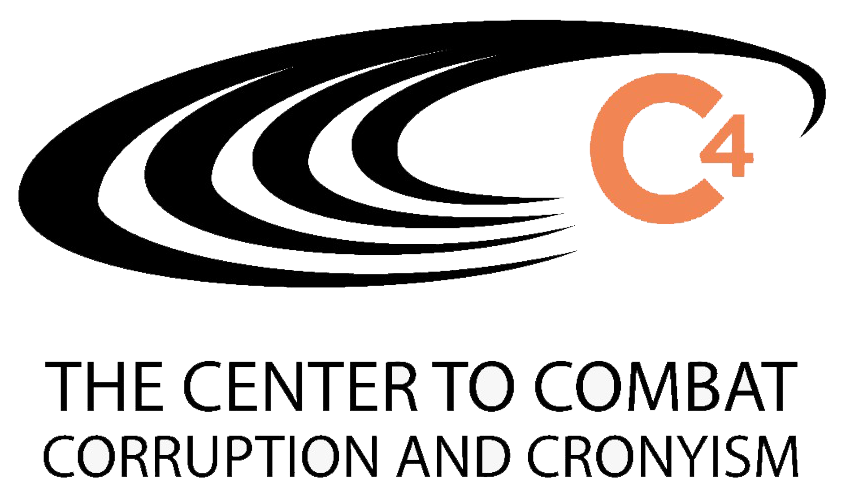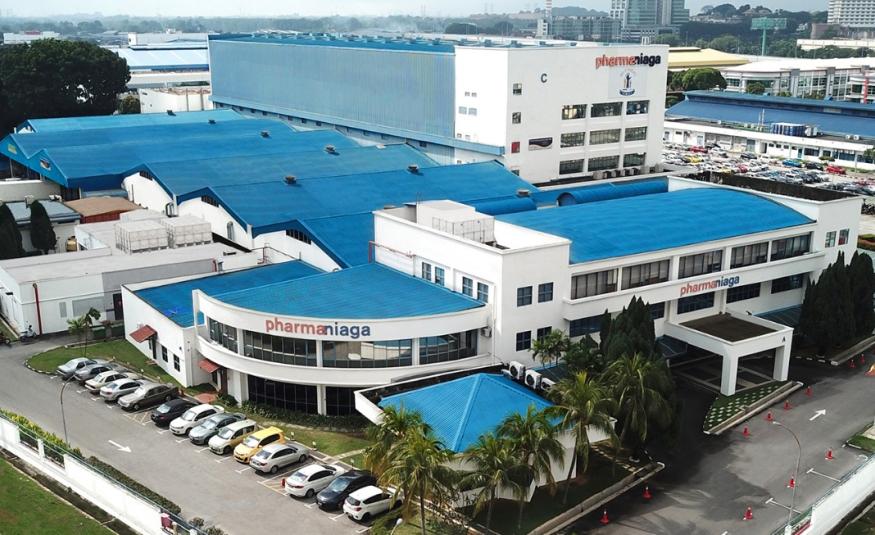The Auditor-General’s 2021 Report (Series 2) has brought to light damning revelations regarding the procurement of ventilators during the COVID-19 pandemic leading to the delivery of 93 defective units and an estimated RM13.07 million in losses.
These findings highlight how the loopholes and flaws in our institutions are not merely issues removed and out-of-touch from general society, but directly affect and impoverish the lives of Malaysians.
The Center to Combat Corruption and Cronyism (C4 Center) is appalled by these revelations and strongly urges further investigations into the matter, the parties responsible to be held accountable.

According to the Report, the Ministry of Health – with approval from the Ministry of Finance after a Cabinet meeting – had paid RM30 million to Company 260790-T (Pharmaniaga Logistics) to procure 500 ventilators estimated to cost RM 50 million.
Of the 500 units, Pharmaniaga delivered only 136; of the 136, only 28 ventilators were in usable condition. The supply of 136 ventilators had cost RM20.1 million – an additional RM3.97 million was also approved to upgrade certain ventilators, pushing the cost of the overall procurement of 136 ventilators to RM24.07 million.
Additionally, the government could not claim for the losses from the defective ventilators, estimated by the national audit to be RM13.07 million, “because there were no documents on the appointment of the procurement of ventilators between Company 260790-T and MOH and the said procurement was done based on the company’s corporate social responsibility (CSR)”.
The lack of documents also meant that the auditors were unable to verify the exact roles and responsibilities of Pharmaniaga Logistics in their dealings with the ventilator manufacturers.
It is difficult to overstate the degree to which good governance principles were flouted in this series of events, all of which speak to the inability of existing institutions to prevent wastage and leakages at this scale. The numerous issues and their intersections with each other that have culminated in these losses must be identified and examined.
First, the Report stated that a Cabinet meeting on 25 March 2020 agreed that Pharmaniaga Logistics would take on the role of supplying the ventilators in what is very likely a case of direct negotiation.
Direct negotiation in the public procurement process has long been criticised as being opaque and shielded from scrutiny due to the lack of a publicly-accessible tender that would allow independent assessment of the merits by which the tender recipient was chosen.
The lack of transparency presents a high conflict of interest risk whereby politicians would be able to offer tenders to companies that they have a financial stake in.
Pharmaniaga Logistics’ parent company, Pharmaniaga Bhd, was itself chosen to procure the Sinovac vaccines by way of direct negotiation.
Here it is also worthwhile to note that Pharmaniaga is a government-linked company (GLC) whose two major shareholders are the Armed Forces Fund Board (LTAT) and Boustead Holdings, whose shares are also majority owned by LTAT.
Second, the above is directly exacerbated by the lack of a contract for Pharmaniaga Logistics’ services in procuring the ventilators due to the operation being a component of the company’s CSR initiatives.
The lack of official documentation outlining the contractual mandates of a company undertaking public procurement of public goods using public funds is simply unacceptable and is extremely vulnerable to abuse – companies handpicked behind closed doors simply being entitled to huge amounts of money under a “CSR'' initiative where that money could be funnelled back into the pockets of politicians is a real risk.
Without a contract, the government is also unable to hold any entity liable or to account for the failure to procure and deliver potentially life-saving medical equipment at the height of a global pandemic.
The use of “CSR'' is emerging slowly as a worrying trend as an easy way to secure government funding at the expense of Malaysians’ well-being and security – it bears reminding that the MySejahtera application which has been besieged with controversy over its ownership and data security was also conceived as a CSR project.
Third, the abysmal performance of Pharmaniaga Logistics in acquiring the ventilators – only 28 of the 136 procured ventilators were functional, well under the target of 500 total units.
This casts serious doubt over the company’s ability to manage these operations to begin with – did the company not conduct proper quality assurance checks to ensure they were receiving functional goods?
Why were they unable to even come close to acquiring the targeted number of units?
On the former question, if the company did not have the expertise or procedural know-how to manage operations, Cabinet’s decision to appoint them to this role seems even more baffling.
On the latter question, it is acknowledged that global supply chain issues may have affected the company’s ability to procure the ventilators in a timely fashion.
However, seeking a remedy for either of these issues was rendered completely ineffectual because a contract for procurement does not exist and hence there was no way of knowing to what extent Pharmaniaga Logistics’ role is and how the responsibility was shared with the manufacturer.
Fourth, the methods by which the funds were handled can also be called into question – the numbers hint at either a gross underestimation of the actual costs needed to procure the ventilators, or that money was spent frivolously and not in accordance with any budgeting undertaken beforehand.
The estimated cost to procure 500 units of ventilators was initially estimated at RM50 million, but the Report showed that the cost to procure and upgrade a mere 136 units was RM24.07 million.
To put these figures in perspective, almost half of the total budget was spent to procure less than one-third of the target number of ventilators.
Was the initial RM50 million estimation the result of a miscalculation, or were there leakages along the way and if so, what decisions made led up to these leakages and who made them? The Report even stated, “... no documents related to transactions on the procurement of ventilators were provided to Auditors.”
Fifth, the flaws of “emergency procurement” by the then-government formed the base from which all these aforementioned issues emerged.
Parliamentary oversight into approving RM30 million for the procurement was notably absent – it was decided in a Cabinet meeting and according to the Report, the Ministry of Finance approved this on the very same day and the sum of RM30 million was disbursed to Pharmaniaga Logistics, demonstrating how “emergency procurement” concentrates the power to control public funds exclusively in the hands of the Executive branch of government. Pharmaniaga Logistics eventually returned RM6.97 million of the advance payment.
Further to the above point is that this whole incident highlights with utmost clarity how the supposed merits of “emergency procurement” are ultimately crushed by the weight of its own implementation.
The rationale by which the government continuously used to defend its use of “emergency procurement” procedures is that Parliamentary approval of a budget to purchase medical supplies would be too time-consuming as COVID-19 ravaged our healthcare system and therefore, it was imperative that these supplies were purchased and supplied to hospitals as fast as possible to prevent the needless loss of lives.
With the Auditor-General’s findings, it is clear that failure to practise good governance in the procurement process ultimately led to Malaysians losing out on 472 more ventilators than they would have had had procurement been conducted in a more transparent and accountable manner. How many more lives could have been saved?
At its core, all of these institutional gaps could simply be distilled to reveal a callous attitude towards the lives of Malaysians.
Prioritising the well-being of Malaysians at the height of the pandemic would have necessitated proper governance in ensuring the delivery of services and equipment needed to treat those suffering from COVID-19.
This also extends to the proper management of funds – the RM13.07 million in losses could have been avoided, and could have been an additional RM13.07 million re-directed into alleviating the burdens of those who were suffering financially as the national economy was crippled by the pandemic.
Casting further shadows over the findings of the Report is that these events that all date back from between 2020 and 2021 are only now revealed to us in 2023, years ahead when the damage sustained as a result of poor governance can no longer be completely remedied.
The more concrete and permanent solution to ensuring that such harms can no longer take place is in the form of institutional reforms that ensure transparency and accountability in our governance.
As such, C4 Center strongly urges the following:
For a Procurement Act to be tabled and enacted as soon as possible, greatly limiting the circumstances which allow for direct negotiations, that contains specific provisions that refer to procurement in times of national crisis, and limiting the scope of powers granted to the government in order to carry out “emergency procurement”;
For the Malaysian Anti-Corruption Commission to continue on with their investigation into this procurement unimpeded, for investigations to be conducted transparently, and should any individual be found abusing their power or position for self-enrichment, for them to be charged and tried in court;
For the unity government to suspend and review all existing procurements made on the grounds of “emergency procurement”, reevaluating each of these projects on their merits and procedural integrity;
For the regulation of CSR programmes in public procurement projects to ensure that it is not abused or used to circumvent procurement rules and regulations, in the interests of self-enrichment – clear terms and conditions must be laid out before any CSR initiative is accepted by the government. - DagangNews.com










